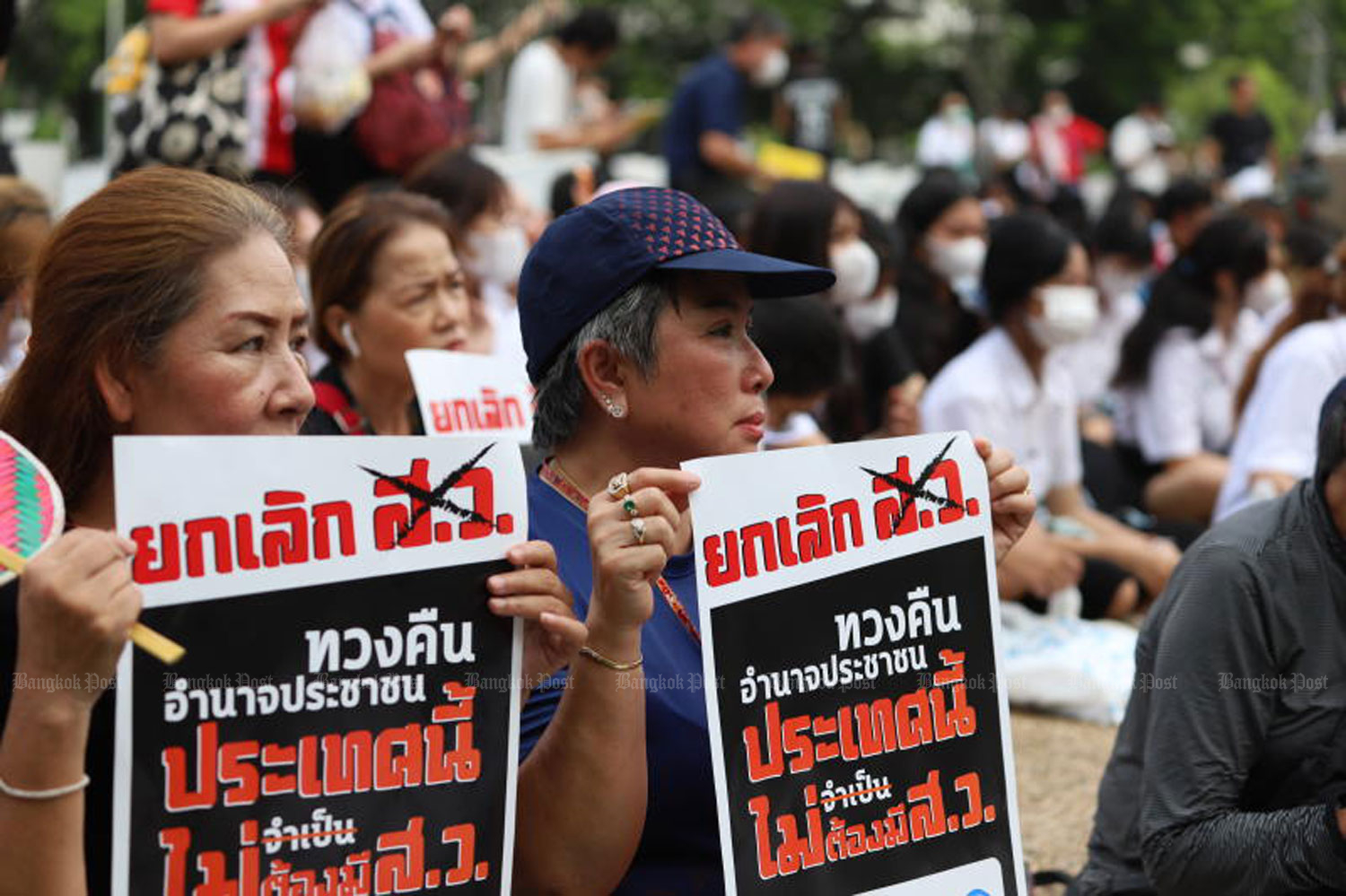
Police have said they will closely monitor political gatherings on July 27, the day of the third round of prime ministerial voting.
National police chief Pol Gen Damrongsak Kittiprapas said on Friday that safety measures, as per the Public Assembly Act, applied to protesters in front of parliament on July 19, will be again applied to any gatherings on July 27.
Pol Gen Damrongsak said police will also conduct situation assessments daily before the date.
Political protesting is a basic right under the law, he said, but those organising protests must inform police in advance so that police can prepare to ensure the gatherings are peaceful and safe from any attempts from a so-called "third hand" to stir up violence.
Pol Gen Damrongsak also ordered the same measures for police nationwide.
In an update, he said legal action would be taken against a 63-year-old man who threw a bag of fermented fish sauce at the office of the Election Commission (EC) in the Government Complex on Chaeng Watthana Road. The man was protesting the EC's decision on Wednesday to forward the iTV shareholding case involving Move Forward Party leader Pita Limjaroenrat to the Constitutional Court.
Pol Gen Damrongsak also said that some Senate and EC members have been filing security requests after being threatened by netizens. He said he had ordered officers to investigate netizens who have threatened senators and EC members online.
Meanwhile, Arnon Klinkaew, chairman of Thai People Protecting the Monarchy group, and Nopadol Prompasit, secretary-general of the Legal Help Centre for Cyberbullying Victims, on Friday filed a case against a netizen who published an audio clip claiming to be an "important [royal] figure" on TikTok.
They submitted what they said was evidence with Pol Maj Gen Athip Pongsiwapai, commander of the Technology Crime Suppression Division (TCSD), to investigate if the publisher violated Section 112 of the Criminal Code, the lese majeste law.
The audio file was published before the second attempt at a prime ministerial vote on Wednesday. According to Mr Arnon, the voice was completely counterfeit, but the voice was made at least 90% similar to a royal figure.
Mr Anon also added that the lese majeste law was designed for no other purposes than royal protection, not for political defamation.
